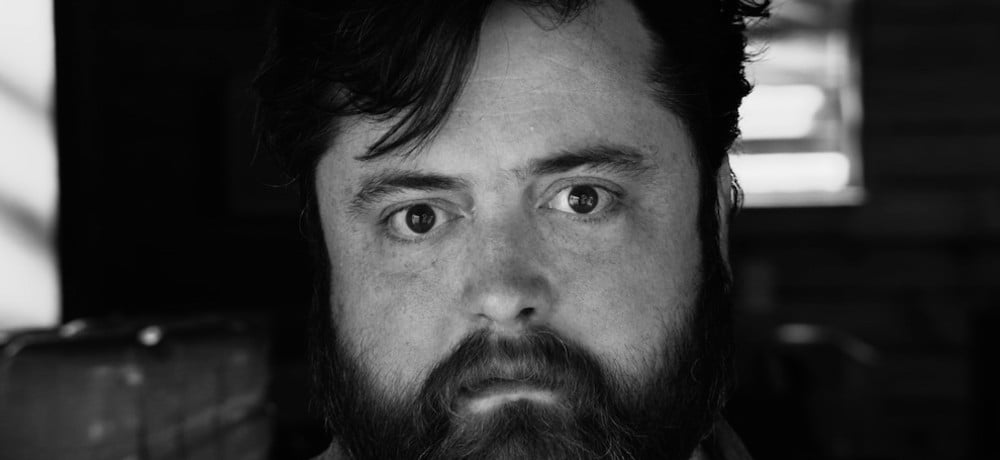






Wozzek (Graham Skipper, also Writer and Director) is a man on the brink of pretty much everything: life, death, human existence, sanity and grief, to name but a few. For several years, Wozzek has been living in a secluded and rural farm house, having relocated there with his wife Nellie (Christina Bennett Lind) after an apocalyptic global disaster, an alien invasion of sorts, known as the ‘calamity’ took place. However, since escaping the apocalypse, Nellie has died in unknown circumstances. This leaves Wozzek lonely and isolated. One of his only forms of company is his taped alter ego, a sobering and rational presence that calms him when he becomes too distraught.
However, he isn’t completely alone; he has managed to construct a machine that can bring Nellie back to life, for certain periods of time. His hope that he can bring her back to life permanently and live with her in matrimony once again. His plans could be ruined by a nightly visitor who presents itself as a friend, but is the voice at the door company for Wozzek or something a lot more malevolent? Quite a big dilemma for a man who appears to be the last person on earth.
As the story unfolds and events from the past are revisited, Wozzek is left to ponder his past relationships, actions, and behaviour, as there is very little else to do.
Despite being set during an apocalypse, Graham Skipper sets his tale during an interesting stage of earth’s demise. The Lonely Man With the Ghost Machine isn’t set during the initial stages of an alien takeover like War of the Worlds or an epic battle or showdown like Mad Max: Road Warriors. Instead, Skipper deals with the loneliness, PTSD and grief as the world slowly pitters out with little resistance, much like the dying embers of a fire. Wozzek’s days are filled with the same monotony and habitual activity – washing, foraging for food, and trying to resurrect Nellie. This is his life. On repeat.
Even though The Lonely Man with the Ghost Machine has an evocative title, alien creatures, personal demons, and a manufactured spirit, it is rather minimalist and stripped back. The film is all about Graham Skipper – in a good way! Not only did he write, produce, and direct this feature, but he is the one on screen throughout – at times it’s a one-man show. And despite much of the activity being about a single person struggling through his routine every day, Skipper manages to convey a complex set of emotions, with more and more unfolding throughout, in an understated fashion.
Despite not relying on, or even needing, scenes of disaster and destruction, hordes of aliens and CGI, when one of the creatures is revealed, it is rather underwhelming, especially as it purported that earth has been consumed by alien invaders. The Lonely Man with the Ghost Machine relied and benefited from the inference and suggestion – not displaying the alien creatures gave another layer of intrigue and menace; showing it simply removed that.
However, at the end of the day – or even the world – the aliens don’t seem to be Wozzek’s main problem – it is his regret, his guilt, his remorse, and maybe even himself.
The Old Man and the Ghost Machine takes an original and personal look at the apocalypse, and although not all themes explored quite land, it is a stark look at the choices we make and how we process them.
Movie Score: 3/5